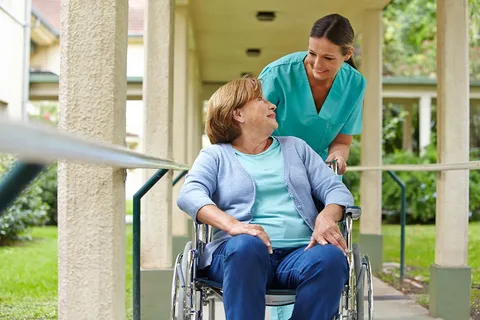Have you tried almost all available Skin Care Products For Men for treating freckles but nothing…
Palliative Care – A Little-Known Blessing For The Elderly
It’s no secret that healthcare costs are rising faster than incomes in many parts of the country. With medical expenses taking up such a large portion of many family budgets, it’s no wonder that many older people fear what the future holds for them and how they will be able to pay for the care they need when they can no longer work.
In most cases, these fears are unwarranted because, despite popular perception, Palliative Care Advice Service provides more services than just nursing home coverage – including some invaluable services that help people stay out of the hospital entirely and live at home as long as possible.
-
Who provides palliative care?
Palliative care is typically provided by healthcare professionals, including doctors, nurses, social workers, and chaplains. Other members of the health team may include occupational therapists to help with day-to-day activities, dieticians to provide nutritional counseling, physical therapists to address mobility issues and speech language pathologists to address swallowing problems.
The goal is to keep people comfortable and as independent as possible. There are many reasons why you would be interested in palliative care: if you have a serious illness; if you have an injury or disability; if your loved one has a serious illness or injury; if your loved one needs more time at home.

-
What are the benefits of palliative care?
Palliative care is a medical specialty that focuses on providing patients with relief from the symptoms, pain, and stress of serious illnesses. It’s generally focused on those with advanced or life-limiting conditions, but it can also benefit those who are living with chronic pain or other issues.
Palliative care can be delivered in hospitals, nursing homes, hospices, and at home. Hospice care provides support for people with a terminal diagnosis as well as their family members. Hospice specialists work together to provide medical care, emotional support, spiritual counseling, pain management, and bereavement services when someone dies.
-
How can I get palliative care for my elderly loved one?
The best way to get Palliative Care Advice Service for an elderly loved one is to ask the doctor. If you don’t have a physician, it may be time to find one. Palliative care providers are often affiliated with hospitals and hospices, but they can also be found in other settings like nursing homes or assisted living facilities. It’s possible that there may not be a provider near your home, which is why it’s important to ask the doctor when you visit about what resources are available in your area.
You might want to call local hospitals and nursing homes to see if they provide palliative care services. Once you’ve found a potential resource, do some more research before making contact. Speak with current patients or speak with their families who have utilized the service recently so that you’ll know exactly what to expect from this type of program before scheduling an appointment for your loved one.
Conclusion
It’s always a sad time when someone who has been a part of your life, whether it be a friend or family member, dies.
But, it can also be comforting to know that they were surrounded by love and care in their last days. If you have an elderly relative who is nearing the end of their life and want to make sure they are in good hands while they transition into the next life, find out more about palliative care.












